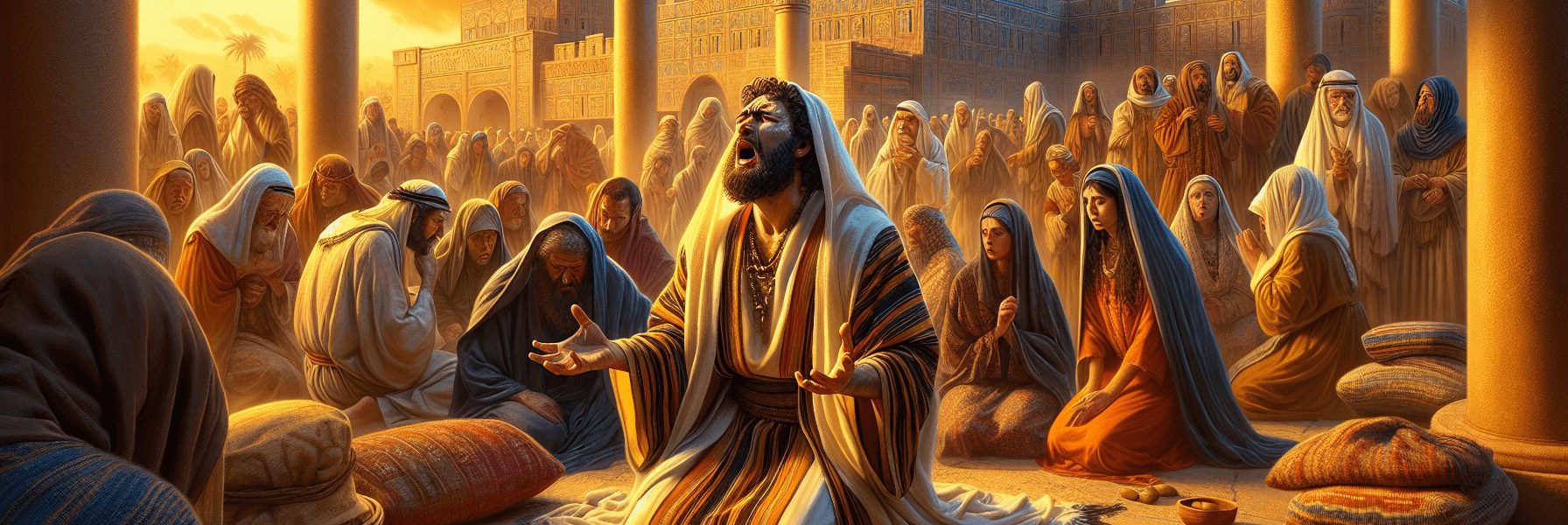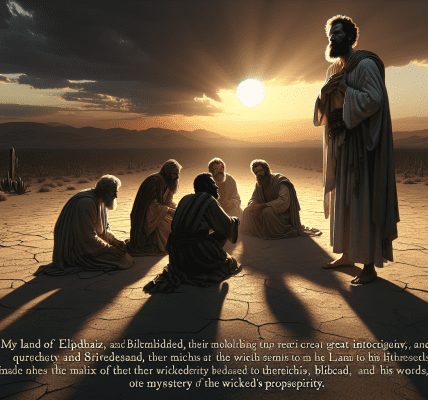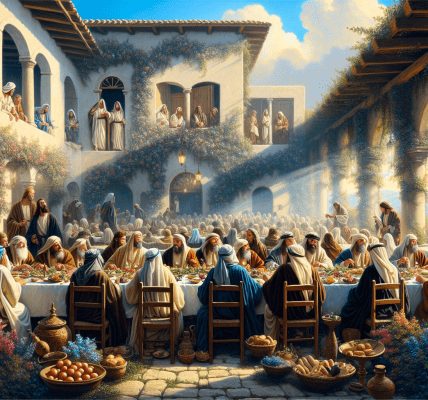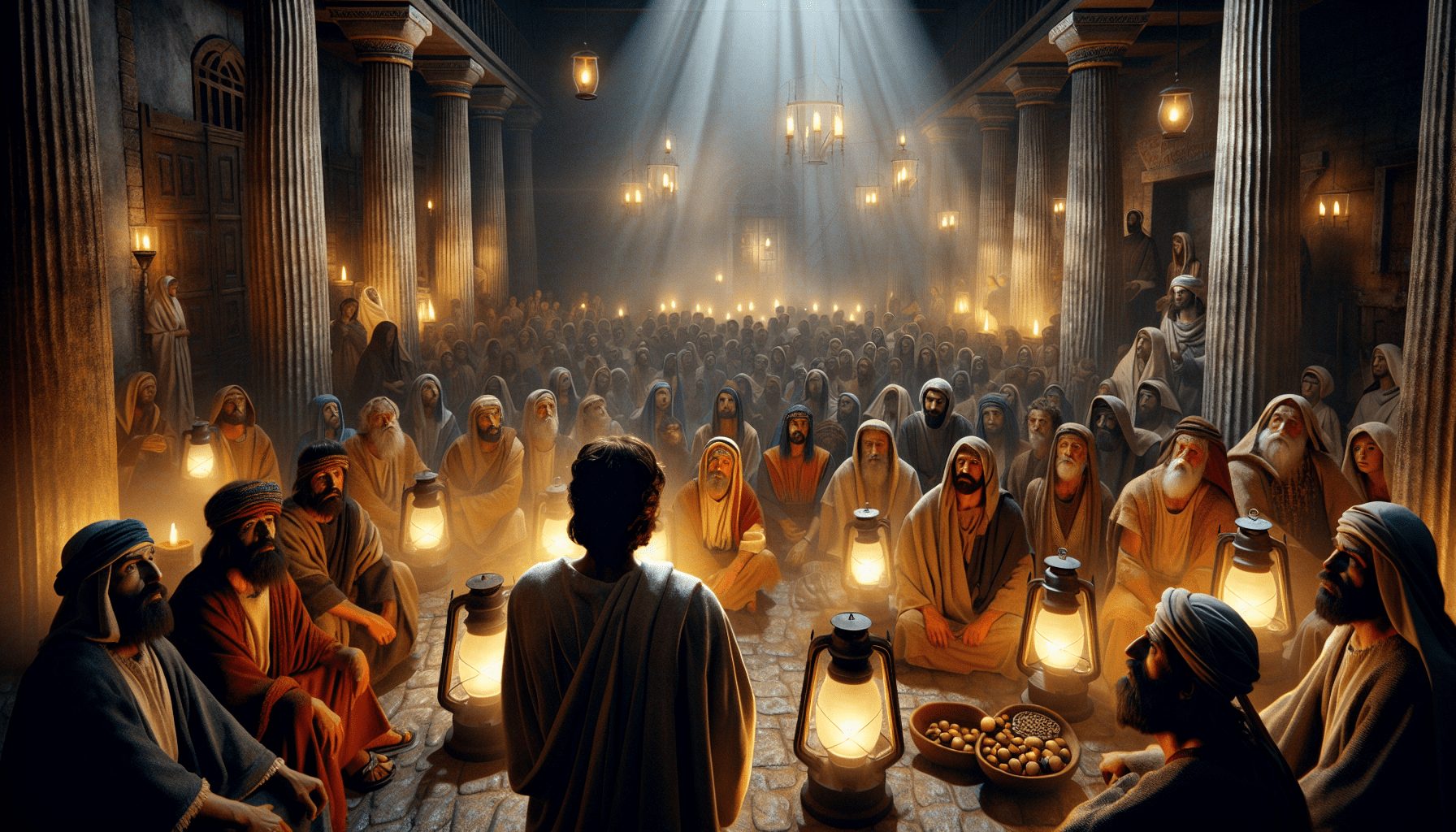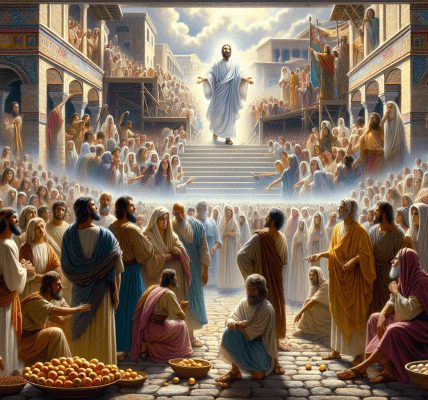**A Time of Repentance and Renewal**
The sun hung low over Jerusalem, casting long shadows across the city’s broken walls and the newly rebuilt Temple. The air was thick with tension as Ezra the scribe, a man devoted to the Law of the Lord, knelt in the courtyard before the house of God. His robes were torn, his face streaked with dust and tears. Around him, a crowd had gathered—men, women, and children who had returned from exile, their hearts heavy with the weight of their disobedience.
For days, Ezra had fasted and prayed, his voice rising in anguished cries to the heavens. The news had struck him like a blow: many of the returned exiles, even priests and Levites, had taken foreign wives, mingling with the peoples of the land in direct violation of God’s command. The Law was clear—such unions would lead the people back into idolatry, the very sin that had brought about their exile.
Now, as the people watched, Shekaniah son of Jehiel, a man of standing among them, stepped forward. His voice trembled as he spoke. *”We have been unfaithful to our God by marrying foreign women from the peoples around us. But in spite of this, there is still hope for Israel. Let us make a covenant before our God to send away all these women and their children, in accordance with the counsel of my lord and of those who fear the commandments of our God. Let it be done according to the Law.”*
Ezra lifted his head, his eyes burning with conviction. He rose to his feet and commanded the leading priests, Levites, and all Israel to swear an oath that they would do as Shekaniah had said. The assembly raised their voices in agreement, though some faces were pale with grief. The cost of obedience would be high—families torn apart, children sent away—but the holiness of God’s people was at stake.
A proclamation was issued throughout Judah and Jerusalem: all the exiles were to assemble in Jerusalem within three days. Those who failed to appear would forfeit their property and be excluded from the community. The threat of divine judgment loomed over them, and the people came as one—men, women, and children—gathering in the square before the Temple despite the heavy rains that began to fall. The downpour mirrored the sorrow in their hearts as they shivered in the cold, their garments soaked.
Ezra stood before them, his voice cutting through the storm. *”You have been unfaithful,”* he declared. *”You have married foreign women, adding to Israel’s guilt. Now, confess your sin to the Lord and do His will. Separate yourselves from the peoples of the land and from your foreign wives.”*
The assembly answered with a thunderous voice, *”You are right! We must do as you say!”* Yet they pleaded for time—the matter was too heavy to resolve in a single day, especially in such weather. Leaders were appointed to oversee the process, and one by one, over the following months, each man who had taken a foreign wife came forward.
The scene was one of both sorrow and solemn resolve. Fathers stood before the elders, their hands trembling as they vowed to send away their foreign wives and the children born to them. Some wept openly, their hearts torn between love for their families and devotion to God’s Law. But they remembered the warnings of the prophets, the destruction that had come upon their ancestors when they had turned away.
In the end, the list was recorded—priests, Levites, singers, gatekeepers, and laymen—all who had taken foreign wives. They brought offerings for their transgressions, rams and lambs sacrificed as atonement for their sin. The smoke of the burnt offerings rose to heaven, a plea for mercy.
And so, Israel was purified. The people turned back to the Lord with renewed zeal, their hearts set once more on His commandments. Though the cost had been great, they knew that faithfulness to God was worth more than earthly comfort. The land itself seemed to sigh in relief, as if the very stones rejoiced at their repentance.
Ezra stood before the Temple once more, this time in quiet gratitude. The storm had passed. The people had chosen holiness. And the Lord, in His mercy, would surely restore them.
